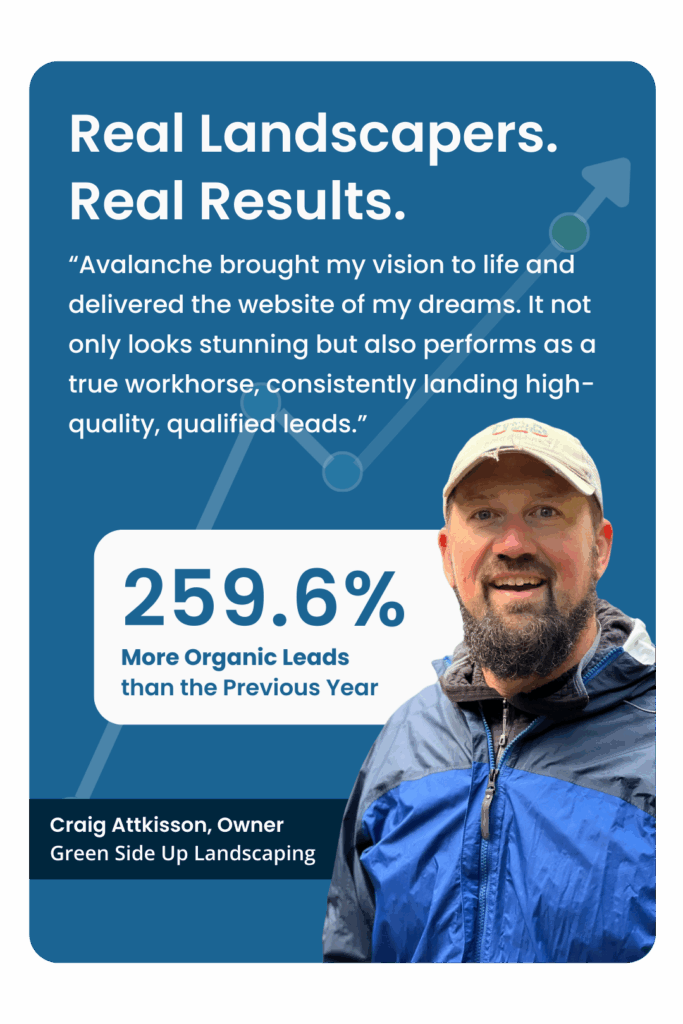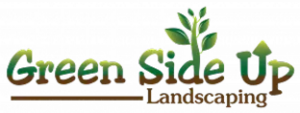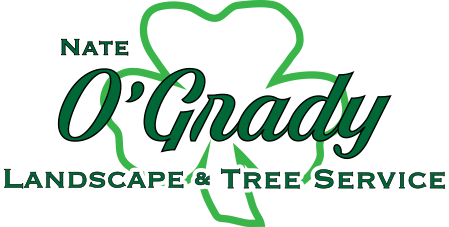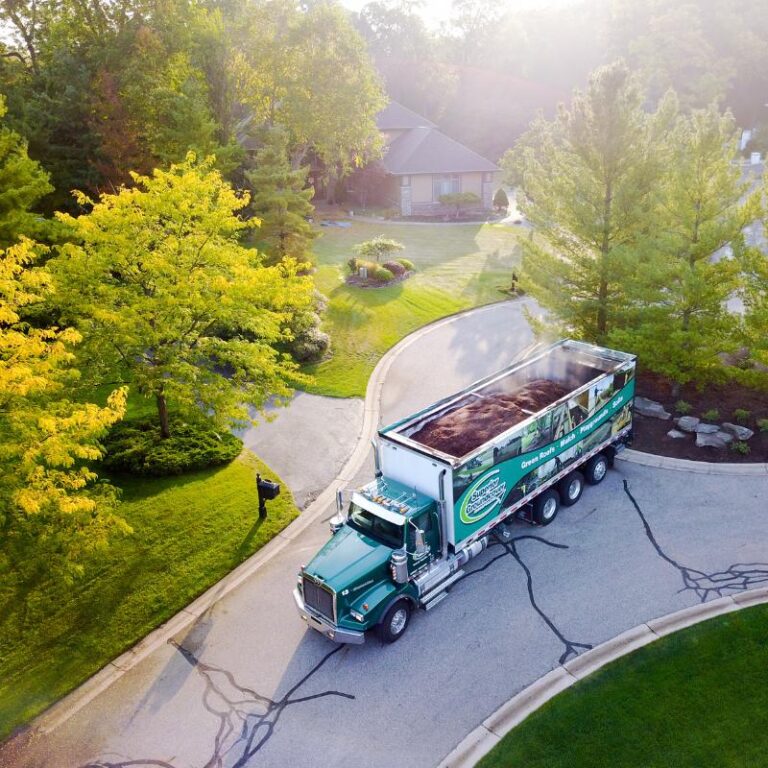Landscaping
SEO Services for Landscapers
You Make Lawns Look Good. We Make You Look Good.
If you don't have a gorgeous website showing up in search engines for queries like “landscaper near me,” you’re losing jobs you never knew you were missing.
Real Results From Businesses Like Yours
We know what gets results for service-based businesses.
Take this landscaping client of ours. They wanted to turn their incredible local reputation into search engine results. So we built a custom strategy and got them:
What could your business achieve with 260% more leads?
Trusted by 200+ Companies
Why SEO Matters for Landscaping Companies
What You Get With Landscaping SEO
SEO for Landscapers
Grow smarter. Bloom bigger.
We help landscaping companies show up for the work that pays, not the tire kickers asking about “just a quick mow.” You’ll get a clear SEO game plan built to grow your business like you grow your lawns: with an actual strategy.
Our Landscaping SEO Process
01
Audit & Research
We dig into your site, your competitors, and the neighborhoods you serve. What’s working? What’s costing you leads? We figure out how to get you in front of more people, faster.
02
Strategy & Planning
You get a custom plan that follows the rhythm of your business: your services, your seasons, your cities. We’ll build a strategy that fills your schedule with the kind of work you actually want.
03
Content & Optimization
We build pages that answer what your customers are searching for—lawn care, mulch installs, cleanups, whatever drives your revenue. Then we make sure those pages do their job: send you leads.
04
Tracking & Improvements
We watch what’s getting calls and what’s getting ignored. Then we keep making smart moves to drive more traffic, more form fills, and more booked work, month after month.
Your Business. Your Goals. Your Perfect Plan.
These estimates are a starting point. Every client goes through our Strategy Plan process to determine what level of investment will lead to the most effective, sustainable growth
Essentials
Ideal for Small businesses starting their SEO journey.
- Website + SEO audit
- Competitor + keyword research
- Content + site strategy
- Growth roadmap
- Light content work
Growth
Ideal for Companies ready to scale their website and revenue.
- Everything from Essentials
- On-page and technical optimization
- Targeted link building
- Local SEO optimization
- Monthly reporting & Quarterly deep dives
- Medium content work
- More dedicated time to generating leads from your website
Market Leader
Ideal for Enterprises dominating highly competitive markets.
- Everything from Growth
- Web design & development support
- Heavy content work
- The most time dedicated to turning your website into a lead machine
Your Business. Your Goals. Your Perfect Plan.
These estimates are a starting point. Every client goes through our Strategy Plan process to determine what level of investment will lead to the most effective, sustainable growth
Essentials
Ideal for Small businesses starting their SEO journey.
- Website + SEO audit
- Competitor + keyword research
- Content + site strategy
- Growth roadmap
- Light content work
Growth
Ideal for Companies ready to scale their website and revenue.
- Everything from Essentials
- On-page and technical optimization
- Targeted link building
- Local SEO optimization
- Monthly reporting & Quarterly deep dives
- Medium content work
- More dedicated time to generating leads from your website
Market Leader
Ideal for Enterprises dominating highly competitive markets.
- Everything from Growth
- Web design & development support
- Heavy content work
- The most time dedicated to turning your website into a lead machine
Real Results From Real Clients
Superior Groundcover
How We Generated 5,000+ Leads for Superior Groundcover
Superior Groundcover
of Conversions Generated Leads (Sept. '23)
Page 1 Ranking Keywords (Jan. '23)
Jobson Roofing
This Roofing Company's Engagement Rate Soared 39%
Jobson Roofing
Organic Conversions were Form Submissions (Nov. '23)
Increase in the Total Engagement Rate (Jan. '24)
North County Landscape Co.
How We Grew Traffic by 53% Without Spending Money on Ads
North County Landscape Co.
Increase in Conversions YOY (2025)
More Organic Leads During Their Busy Season (Feb-June '25) Than the Previous Year
Antonelli’s New Content Strategy Brought in 285 New Leads in Just 6 Months
Antonelli’s New Content Strategy Brought in 285 New Leads in Just 6 Months
Antonelli’s New Content Strategy Brought in 285 New Leads in Just 6 Months
Key events (Jan - Jul '25)
Conversions in '25 Q2 compared to Q1
Frequently Asked Questions
Looking for More on Landscaper SEO?
Sorry, we couldn't find any posts. Please try a different search.















